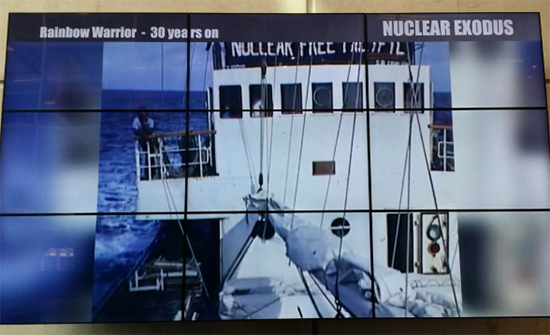
State-backed terrorism as exemplified by the bombing of the Rainbow Warrior, the Amsterdam-registered flagship of the Greenpeace environmental movement, on 10 July 1985 in New Zealand, and the assassination of pro-independence leaders and, allegedly, at least one journalist in French Pacific territories by secret agents or military officers in subsequent years, has left a legacy of insecurity. In July 2015, New Zealand marked the thirtieth anniversary of the bombing in a more subdued manner than a decade earlier. While there was considerable focus on a rehashing of the French spy drama from a narrow “how we covered it” perspective, there was little introspection or reflection on broader issues of regional security. For example, the sabotage of the environmental flagship was not addressed in the wider context of nuclear-free and independence movements active in New Caledonia, New Zealand’s near Pacific neighbour, or of nuclear refugees such as those from Rongelap Atoll, from where the Rainbow Warrior had relocated an entire community to a safer environment following United States nuclear tests in the Marshall Islands. At the time of the second anniversary, Le Monde exposed the responsibility of President François Mitterrand for Opération Satanique and later revealed much of the detail about the so-called “third team” of bombers. This paper examines the broader context of the bombing in the Pacific geopolitical challenges of the time and the legacy for the region, from a journalist’s perspective, as the region has moved from the insecurity of nuclear refugees to that of climate change refugees, or climate-forced migrants. The paper also contextualises a research and publication multimedia project by some forty student journalists in a university partnership with Little Island Press from the perspective of media and terrorism, deliberative journalism (DJ) and human rights journalism (HRJ).
Eyes of Fire - 30 Years On microsite
Robie, David, (2017). The insecurity legacy of the Rainbow Warrior Affair: A human rights transition from nuclear to climate-change refugees. Pacific Dynamics, 1(1), 133-152. ISSN: 2463-641X Available at the University of Canterbury Research Repository: https://ir.canterbury.ac.nz/handle/10092/13641


